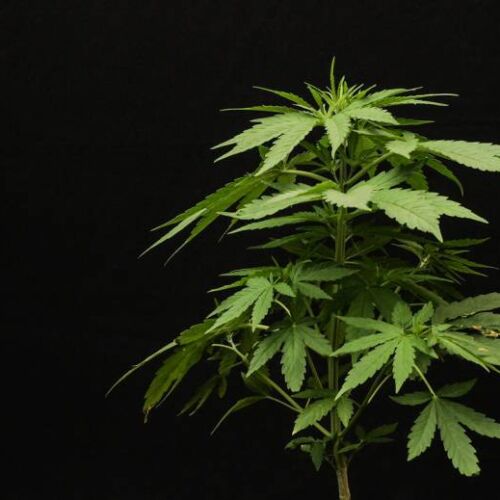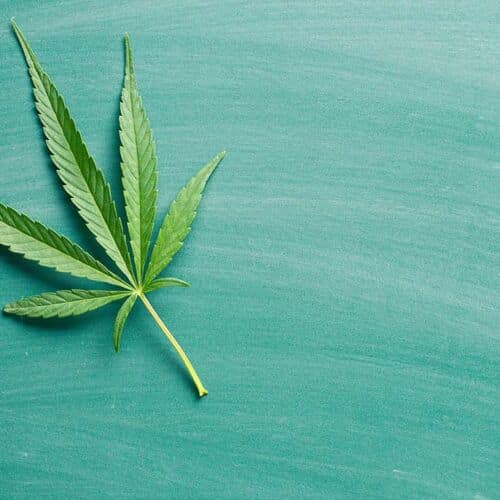Are patients in medical cannabis states substituting pot for potentially lethal painkillers? It appears that way.
According to data published in the Journal of the American Medical Association Internal Medicine, the enactment of statewide medicinal marijuana laws is associated with significantly lower state-level opioid overdose mortality rates. Investigators conducted a time-series analysis of medical cannabis laws and state-level death certificate data in the United States from 1999 to 2010 – a period during which 13 states instituted laws allowing for cannabis therapy.
Researchers reported, “States with medical cannabis laws had a 24.8 percent lower mean annual opioid overdose mortality rate compared with states without medical cannabis laws.”
Specifically, they found that overdose deaths from opioids decreased by an average of 20 percent one year after the law’s implementation, 25 percent by two years, and up to 33 percent by years five and six.Although the exact mechanism is unclear, our results suggest a link between medical cannabis laws and lower opioid analgesic overdose mortality.
Commenting on the study to USA Today
Co-author Colleen L. Barry said: “[The study’s findings] suggest the potential for many lives to be saved. … We can speculate … that people are completely switching or perhaps supplementing, which allows them to lower the dosage of their prescription opioid.”
It is understandable why many chronic pain patients are making the switch. Annual deaths by opiates have increased over 400 percent since the late 1990s, and now average over 16,600 per year. In addition, over 100,000 hospitalizations are attributable annually due to the use of non-steroidal anti-inflammatory drugs (e.g., Advil, Aleve) as well as numerous fatalities. (One study tallied over 16,000 deaths per year due to the use of NSAIDS by patients with rheumatoid arthritis or osteoarthritis.) Even the use of acetaminophen poses severe risks, contributing to more than 50,000 hospitalizations yearly and an estimated 500 fatalities (attributable to acute liver failure). By contrast, cannabinoids are comparatively non-toxic to healthy cells and organs and are incapable of triggering lethal overdose.
They are also efficacious in addressing pain, including chronic neuropathy – a hard to treat type of nerve-related analgesia that is typically resistant to conventional painkillers. (It is estimated that some eight percent of U.S. citizens suffer from neuropathy, which is associated with a variety of diseases, including diabetes, HIV, and, multiple sclerosis.) In FDA-approved clinical trials, neuropathy patients have consistently reported significant pain relief following whole-plant cannabis administration, even when it is administered in especially small doses. A recent review of a number of these trials, published in the British Journal of Clinical Pharmacology, concluded, “[I]t is reasonable to consider cannabinoids as a treatment option for the management of chronic neuropathic pain with evidence of efficacy in other types of chronic pain such as fibromyalgia and rheumatoid arthritis as well.”
The journal Clinical Pharmacology & Therapeutics
Further reports that cannabis administration possesses a synergistic analgesic effect when used adjunctively with opiates. “[This] combination may allow for opioid treatment at lower doses with fewer side effects” authors theorized.
Other pain experts have made even stronger recommendations in favor of the use of cannabis as either an adjunct treatment or a substitute for prescription painkillers. A review appearing in 2012 in the Harm Reduction Journal acknowledges, “Prescribing cannabis in place of opioids for neuropathic pain may reduce the morbidity and mortality rates associated with prescription pain medications and may be an effective harm reduction strategy.” It concludes, “In states where medicinal cannabis is legal, physicians who treat neuropathic pain with opioids should evaluate their patients for a trial of cannabis and prescribe it when appropriate prior to using opioids.”
Apparently, a growing number of pain physicians, and their patients, are now heeding this advice.
Read more: https://dailycaller.com/2014/09/05/pot-for-pain-more-patients-are-saying-yes/#ixzz3CSUMc9To


